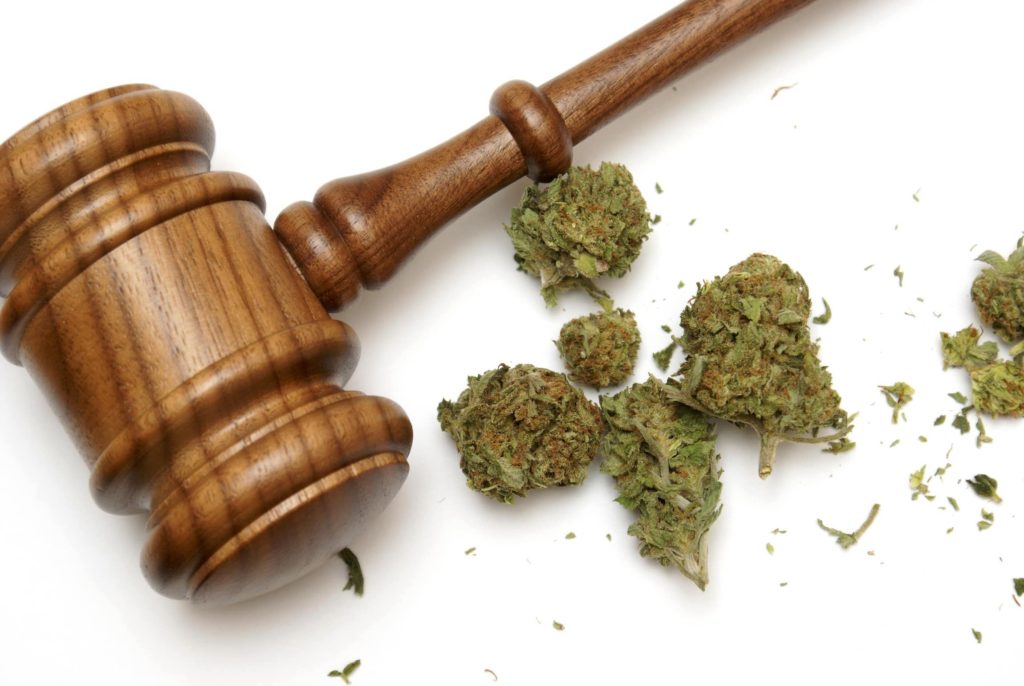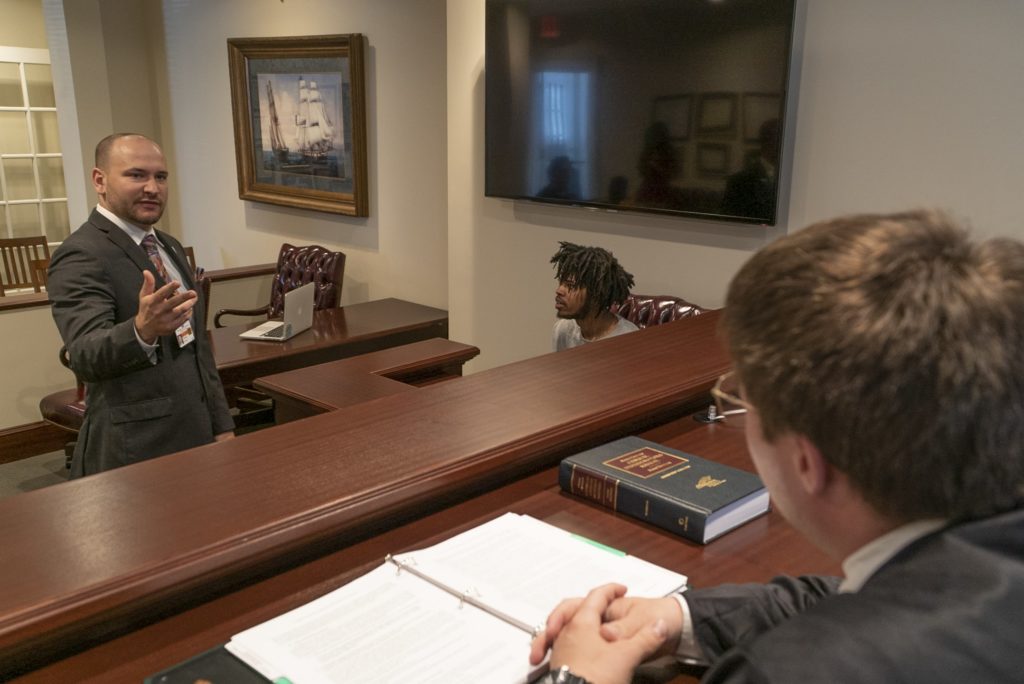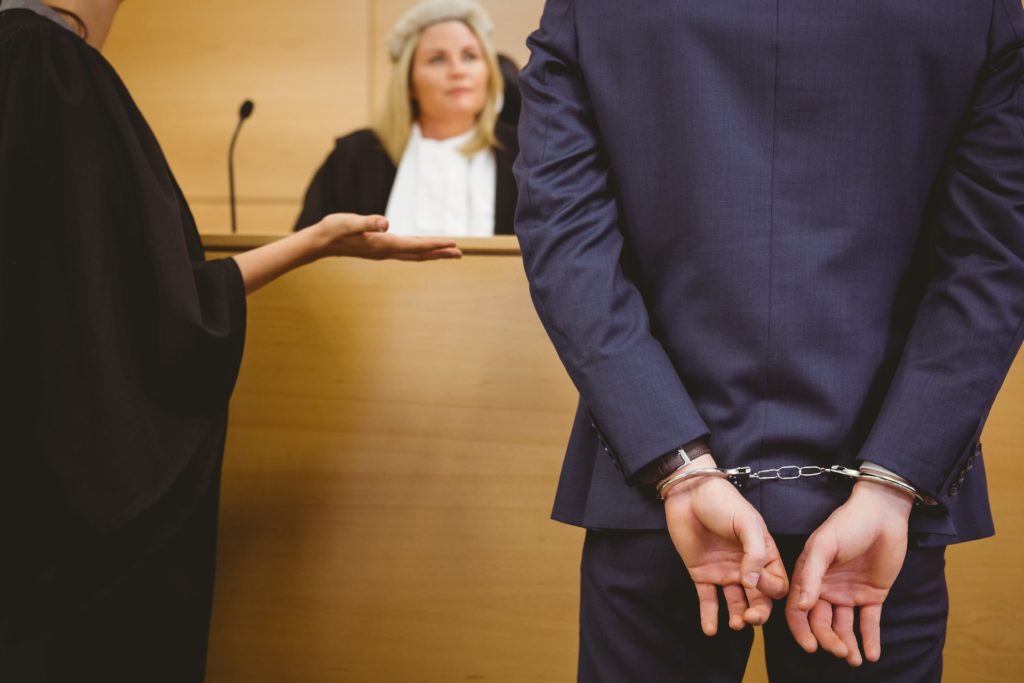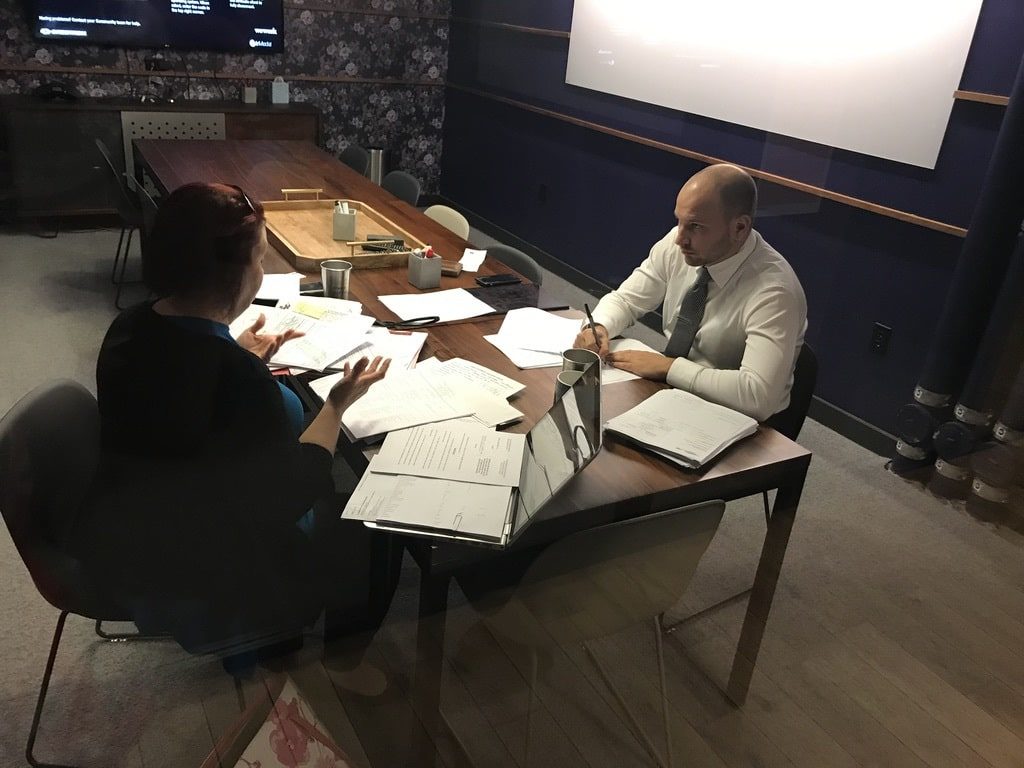Criminal Law
riminal Law in North Carolina
This page is intended to highlight some of the most frequently discussed topics I have discussed with clients and some of the most frequently charged crimes in North Carolina. There are a lot of potential crimes that police officers can charge a citizen with. We know, for example, that the definitions of over 800 crimes appear in Chapter 14 of the North Carolina General Statutes under the title “Criminal Law.” This is not intended to cover every crime that I have represented or the crimes that I would potentially represent for a client.
Nonetheless, this website is designed to provide some insight on the most common charges and to potentially help future clients gain a better understanding into some questions you could potentially have. If you have any more questions or would like to inquire about my services, please call or text (980) 613-4849.
Need help with criminal defense?
North Carolina Crime Statistics
The majority of North Carolina’s law enforcement agencies participate in the Uniform Crime Reporting (UCR) Program. The UCR is a program put on by the Federal Bureau of Investigation (FBI), and is sought out to produce criminal statistics for law enforcement agencies and scholars alike to improve their processes or research. North Carolina law enforcement agencies, and other states’ agencies, voluntarily submit their crime data to the FBI, so that the UCR can be produced. Crime data includes arrests, number of specific crimes, and number of all other quantifiable data an agency chooses to provide.
The North Carolina crime report shows that there were over 41,000 violent crimes and property offenses in Charlotte-Mecklenburg in 2017 alone.
Violent crimes included in this report were:
-
- Murder
- Rape
- Robbery
- Aggravated assault.
Property crimes included in this report were:
-
- Burglary
- Larceny
- Motor vehicle theft
- Arson.
For the full 2017 North Carolina Summary Report click here.
Misdemeanor Charges:
Most people understand that misdemeanor charges are not considered as seriously as a felony charge is, but all do not understand that misdemeanors should not be taken lightly. Indeed, misdemeanor offenses can impact your ability to be accepted into a certain school or university, make a difference on whether you’re eligible for a particular job, impact your ability to lease or rent from a landlord or rental property, and unpredictably, on your permanent record even if the charge is dismissed.
It is important to understand your charges and what the best course of legal action to seek the best possible outcome, expunge your charges or pleas, and or beat the charges as soon as possible. If you have any more questions or would like to inquire about my services, please call or text (980) 613-4849.
In your first hearing following being charged with a misdemeanor, you will be read your charges and then you can enter a plea. Usually before the plea is stated for the judge, the prosecutor and the attorney have already worked out a plea deal. An attorney can be extremely useful in helping to negotiate the outcome of your case without trial. That is why it is important to retain counsel as soon as you learn of your charges.
If your attorney is unable to negotiate an outcome which protects your rights, it may be in your best interests to take the case to trial. A trial is where your attorney will defend you in hopes of being found not guilty. If you are found guilty, you have the right to appeal in North Carolina Superior Court. However, there is a window of only 10 days in which you can appeal a guilty verdict. Because this process is extremely time sensitive, it is important that you retain an attorney as soon as possible.
If you are convicted of a misdemeanor, you can utilize the North Carolina Misdemeanor Sentencing Chart to help predict your incarceration. You can use this chart for offenses committed on or after December 1, 2013. (please understand that the active punishment is not NORMALLY set for misdemeanors and the judge has the discretion to suspend sentences and determine the length of your particular sentence.)
Types of Punishment
- Community punishment: typically involves unsupervised or supervised probation, or a fine; OR
- Intermediate punishment: typically involves probation with at least one of the following: house arrest, community service, substance abuse treatment, satellite-based monitoring, fines, or restitution, and others of this severity; OR
- Active punishment: incarceration in local jail or state prison.
Expungement
An expungement (also known as an expunction) in North Carolina is a court order to remove a criminal record. After, an expungement is completed, it places the individual in the status they were prior to the record’s existence in the eyes of the law. Once a record has been officially expunged, the individual can honestly, without committing perjury, refuse to acknowledge and even deny that the criminal activity occurred. Please note that this rule has exceptions and that not every expungement allows denial of the incident, though most do.
If you were found not guilty for a misdemeanor, or your charges were dismissed, you can you can seek expungement immediately after the dismissal.On the contrary, if you were found guilty of a misdemeanor, you are required to wait at least five years before expungement, and ten years for a felony. Please contact our offices to determine if you are eligible for an expungement and we can start the expungement process for you.
Assault and Assault on a Female
In North Carolina, assault encompasses both assault and battery. Typically, battery is the striking or touching of another person without their consent and does not always need to cause physical injury. Assault is typically defined as the making an individual fearful of physical injury or death. Assault laws in North Carolina place the feeling of fear for injury or death and actual physical contact in the same category. Assault, depending on the nature of the incident, can result in misdemeanor or felony charges.
Assault on a Female is classified as when a male, age 18+, is accused of assaulting a female. Assault on a Female is charged as a Class A1 misdemeanor. Meaning, no matter the circumstance is you will be charged with the highest misdemeanor if convicted.
Burglary
Burglary involves the breaking and entering of building, residence, or place one is unauthorized to be inside, with the intent to commit a crime. You can be charged with first or second-degree burglary, or potentially common law felony burglary. More specifically:
- First Degree Burglary: When the crime is committed in a home, apartment, or room used for sleeping, and the victim is home during the crime.
- Second Degree Burglary: When the crime is committed in a home, apartment, or room used for sleeping and the victim is not within the home.
Need help with criminal defense?
Restraining Orders (50B or 50C)
Restraining Order is a colloquial term in North Carolina for a protective order. When someone says a restraining order, in this state, the law does not actually refer to it as a restraining order, but rather we use the terms protective and no-contact order. This charge usually means we will have a trial to determine if the accuser will succeed or we will agree and consent to the order based on the client and or evidence.
In North Carolina, there are several types of protective orders such as the following:
-
- Civil no-contact orders; and
- Civil no-contact orders for victims of registered sex offenders; and
- Domestic violence protective orders; and
- Criminal Protective Orders

Often times, when released on bail or as a term of one’s sentence, you may have a criminal protective order. Depending on what the criminal protective order hinders you from, an attorney may be able to fight the order. Please contact our offices at (980) 613-4849 to discuss the circumstances of your restraining order.
If someone is attempting to file a restraining order against you, it is important to contact an attorney before attempting to fight it or inquiring about the reasoning behind it. Often times, the paperwork, which is mailed to you, notifying you of the ordering being brought against you, will include a temporary order, called an ex-parte order. This temporary order issued by the judge and cannot be disputed. It is important that you abide by the temporary order if you receive one, as it can reflect poorly on you and possibly impede on the likelihood of the long-term protective order being dropped.
If a restraining order against you is granted, it is important that you do not violate the terms of the order. Depending on the type of protective order, you can receive a Class A1 misdemeanor for your violation (no matter how insignificant the violation is). Please note that even if the alleged victim reaches out to you, you are not to violate the terms of the order, as the granted order is maintained by law.
Possession of Marijuana
In North Carolina, the possession of marijuana is illegal. Unlike the states of Oregon and Washington, North Carolina has not made efforts to legalize recreational use of marijuana. There are two routes a prosecutor can take in attempting to prove someone had possession of marijuana. The first route would be actual physical possession, for example, in your purse or wallet. The second way in which a prosecutor can prove you were in possession of marijuana is through constructive possession. Constructive possession is when the marijuana is stored where you can access, dispose, or utilize it. North Carolina breaks possession of marijuana down by the amount of which an individual is caught with.
-
- Possession of 0.5 ounce of marijuana(or less): Class 3 misdemeanor
- Possession of 0.6 – 1.5 ounces of marijuana: Class 1 misdemeanor
- Possession of over 1.5 oz – 10 pounds of marijuana: Class I felony
Possession of 0.5 ounces of marijuana is the most charged crime in Mecklenburg County over the last 12 months (May 2018- May 2019). Possession for 0.5 ounces or less is a Class 3 misdemeanor, which can face up to 30 days in jail and up to $200 in fines. This may not seem like a harsh penalty, but if you have past criminal records, your sentence can be more severe. Also, possession charges can take a toll on your career and education opportunities.

The possession of marijuana between 0.6 ounces and 1.5 ounces can result in a fine and up to 120 day of jail time, being that it is a Class 1 misdemeanor. Sentences for this crime may also vary depending on criminal record.
Individuals are charged with a felony if they are found in possession of over 1.5 ounces of marijuana. A felony is charged for over 1.5 ounces even if it is your first marijuana-related charge. A clean criminal record may help alleviate your sentence, but if you possessed over 1.5 ounces your charge will remain a felony. Possession of over 10 pounds of marijuana can result in a marijuana trafficking charge. Trafficking is an extremely severe charge and carries minimum prison sentencing, regardless of criminal record.
Please keep in mind that possession charges are often paired with drug paraphernalia charges. These are two separate offenses which will impact your record as two separate charges. Which can, in turn, affect your sentencing. It is important to consult with an attorney on marijuana-related matters. Being that other states have legalized and/or decriminalized the medicinal and recreational use of marijuana; it may seem that a charge of this nature would not have lasting effects. However, for as long as the state you live in continues to charge for possession of marijuana, it will continue to hinder career, education, and travel opportunities. Even in states which have legalized the use of marijuana, a criminal charge can reflect negatively on you.
Please contact our offices at (980) 613-4849 if you have any questions regarding your marijuana possession charge. We will ensure your future is not defined by marijuana charges.
Possession: Drug paraphernalia is defined as “means all equipment, products and materials of any kind that are used to facilitate, or intended or designed to facilitate, violations of the Controlled Substances Act, including planting, propagating, cultivating, growing, harvesting, manufacturing, compounding, converting, producing, processing, preparing, testing, analyzing, packaging, repackaging, storing, containing, and concealing controlled substances and injecting, ingesting, inhaling, or otherwise introducing controlled substances into the human body.” Drug paraphernalia is often times charged with other violations, like possession of a controlled substance. North Carolina made a significant change to its Drug Paraphernalia laws on December 1, 2014. North Carolina now has separate legislation for marijuana paraphernalia. All other drugs remain grouped in paraphernalia legislation. A violation of possession of marijuana paraphernalia § 90-113.22A. is a Class 3 misdemeanor. This is in contrast to possession of all other drugs, which results in a Class 1 misdemeanor. [/vc_column_text]
Therefore, where one previously would have up to 120 days of community, intermediate, or active punishment, violators now will have up to 20 days community, intermediate, or active punishment.
Even with this alleviated possible sentence, it is important that you consult with an attorney to ensure your rights are protected and you are aware of all of your options regarding your charge. All other drug paraphernalia is charged as a class 1 misdemeanor, meaning one can receive up to 120 days in jail for possessing drug paraphernalia.
-
- Community punishment: typically involves less strict probation, house arrest, community service, substance abuse treatment, satellite-based monitoring, fines, or restitution, and others of this severity.
- Intermediate punishment:
- Active punishment: incarceration in local jail or state prison.

Manufacture or Delivery of
It is illegal for a person to deliver or possess with intent to deliver, or manufacture with intent to deliver drug paraphernalia knowing that it will be used. Each individual item of drug paraphernalia with intent to deliver, manufacture with intent to deliver, or delivery is a separate offense. This is a Class 1 misdemeanor. If a person over the age of 18 delivers drug paraphernalia to a minor who is 3 or more years younger than the deliverer it is a Class 1 Felony.
Advertisement of
It is a Class 2 misdemeanor for a person to purchase or otherwise procure an advertisement in newspaper, magazine, handbill, publication, billboard, sign, or other outdoor display for the purpose of advertising drug paraphernalia.
Schedule II Controlled Substances:
Under the North Carolina Controlled Substances Act, controlled substances are categorized in to schedules. There are six schedules for which controlled substances are listed under. North Carolina uses a set of characteristics for each schedule to determine which substances fall under the schedule. Some examples of attributes they consider are potential for abuse, medical use, psychic or physical dependence. Substances found under Schedule II contain high potential for abuse; currently accepted medical use in the U.S. or currently accepted medical use with severe restrictions; and the abuse of the substance may lead to severe psychic or physical dependence. Examples of these drugs include opium, codeine, hydrocodone, morphine, oxycodone, oxymorphone, fentanyl, cocaine, amphetamines, methamphetamine, amobarbital, and more. Possession, selling, and manufacturing of schedule II controlled substances result in punishment as a felony. The type of felony varies. North Carolina classifies the compounds used to manufacture controlled dangerous substances as controlled dangerous substances individually as well.
Need help with criminal defense?
Driving While Intoxicated (DWI)
In order to be charged with DWI, under N.C. Gen. Stat. § 20-138.1, a person must be:
Operating a motor vehicle on a public street, highway, or public vehicular area with a Blood Alcohol Concentration (BAC) of 0.08% or above.
OR
Operating a motor vehicle while alcohol, drugs, or a combination of drugs and alcohol impair your mental and/or physical abilities, even though your Blood Alcohol Concentration (BAC) does NOT rise to 0.08%.
OR
Operating a commercial motor vehicle on a public street, highway, or public vehicular area with a Blood Alcohol Concentration (BAC) of 0.04% or above.
When do I get my license back?
After one is charged with an implied consent offense, you will be also be charged with a 30 day civil revocation. Depending on the county and circumstances, you may be able to get you license back within 10 days. If not, you will be able to get your license back after 30 days upon paying the clerk of court a $100 civil restoration fee. Thus, even though it is called a 30 day civil revocation, your licensed will be suspended until you pay the $100 civil revocation.
Refusal of a Breath Test
Refusing a breath test means you can face a one-year revocation of your driver’s license. The DMV nine times out of ten will send you a letter in the mail informing you of your license suspension. Every single licensed North Carolina licensed driver upon receiving their license also consents to submitting to a chemical test to determine their blood alcohol concentration (BAC) or the amounts of drugs in the persons system. However, the officer must have reasonable suspicion that you are impaired to ask for you to conduct these tests.
Thus, there is a penalty for not taking the breath test. Refusal to conduct a chemical tests results in a one year suspension of your license. Most will qualify for a Limited Driving Privilege within 6 months of that one-year suspension. Additionally, the arresting officer must tell the person arrested:
- Of the right to refuse testing, but that such a refusal will result in immediate license revocation of at least one year
- That a test result showing a BAC of .08% or higher will result in a license revocation of at least 30 days
- Of the right to contact an attorney and have a witness present to observe the testing procedures (provided that consultation with counsel and selecting a witness doesn’t delay testing more than 30 minutes), and
- Of the right to seek an independent alcohol test—in addition to that ordered by the officer—upon release
| OFFENSE |
Length of Suspension or |
Description Statute(s) |
Suspension Statute(s) |
|
DWI (first offense) |
1 year |
G.S. 20-19(c1) |
|
|
DWI (second offense) |
4 years |
G.S. 20-19(d) |
|
|
DWI (third or subsequent offense) |
Permanent |
G.S. 20-19(e) |
|
|
Refusal of chemical analysis |
1 year |
G.S. 20-16.2(d) |
|
DMV Refusal Hearing:
Our firm has successfully won hearings at the DMV hearing. DMV hearings are conducted by a hearing officer in a small office with the police officers that charged you for your particular case. Here are the issues that they are to consider:
(1) The person was charged with an implied-consent offense or the driver had an alcohol concentration restriction on the drivers license pursuant to G.S. 20-19;
(2) A law enforcement officer had reasonable grounds to believe that the person had committed an implied-consent offense or violated the alcohol concentration restriction on the drivers license;
(3) The implied-consent offense charged involved death or critical injury to another person, if this allegation is in the affidavit;
(4) The person was notified of the person’s rights as required by subsection (a); and
(5) The person willfully refused to submit to a chemical analysis.
Winning:
In North Carolina, we have two chances to beat a DWI. That’s right, first, in District court a case can be presented to the judge and if we lose, we can take an appeal to the Superior court of North Carolina in front of a jury of our peers.
Pleading:
You might not want to challenge the DWI or the facts might not warrant fighting a DWI. This is normal and as an attorney, I will teach and put you in the best possible position when facing the judge to justify the most lenient punishment. Here is a guide on what judges use to determine your appropriate punishment.
http://www.ncids.org/defender%20training/2011NewMisdemeanor/DWI_SentencingChartAfter12-1-11.pdf © 2013 School of Government The University of North Carolina at Chapel Hill

Limited Driving Privilege:
If the Clerk of court has sent information to the DMV that your license was seized, you will be assessed a 30-day civil revocation. However, you can have a limited driving privilege in some instances ten days after being charged with a DWI, or thirty days after being charged with a DWI. You also might be interested in having a limited driving privilegeif you are ultimately found guilty of a DWI.
Requirements before Limited Driving Privilege is accepted.
- At the time you were stopped you must have had a valid license to drive (or, if it is expired, it has to have been expired for less than you).
- You must not have been convicted of driving while impaired within the preceding seven (7) years.
- You cannot have been charged with any additional DWI since receiving the charge for which you are revoked.
- You must have proof of insurance, with a form called a DL 123.
- You need proof that you have obtained a substance abuse assessment (send me a PDF or fax of document)
- $100 cash fee to the clerk of court. $103.50 f you pay credit card and must have license matching the name on that specific card.
North Carolina DWI/DUI:
A DUI or DWI is the most unique criminal charge within the criminal justice system in North Carolina. Unlike other criminal accusations, prosecutors are less willing to make any negotiations regarding any allegations of drinking and driving. Public policy will always side with harsher punishments for drinking and driving.
Ultimately, the difference between a “guilty” and “not-guilty” will depend on several different factors:
- The initial stop of the vehicle itself -If the police officers did not have the reasonable suspicion or probable cause to pull the vehicle over, a judge can find the entire process unlawful and therefore find you not guilty.
- The circumstances around the arrest -If the police officers did not properly administer the field sobriety tests and the breath tests or did not instruct you properly during or after the investigation, then the arrest was improper and is a valid defense to a DWI.
- The police officer did not have probable cause to believe you were appreciably impaired.
- Challenging the results of the field sobriety tests.
- Showing a judge or jury that the state did not prove its case beyond a reasonable doubt.
Common Myths:
-
- If I blow over a .08 (.04 for CDL license) I am guilty of a DWI
- If I blow under a .08 you I am not guilty of a DWI
- If I blow well over .08 then I am definitely guilty of a DWI
It is not true that a .08 or higher means you are intoxicated! This gives a judge or a jury the ability to convict a person, but that does not mean they are instructed to. They still have the discretion to disagree that the person was truly intoxicated!
DWI/DUI Search and Seizure:
More often or not, winning this charge is not based on proving to the court that the Defendant was not intoxicated but that the police officers did not act properly in your particular case. If we can prove that the law enforcement “did not play by the rules” your charges can be dismissed, and you can be found not-guilty.
-
- Was there reasonable suspicion to stop the vehicle?
- Did the police have an arrest warrant, order for arrest, or a search warrant?
- Did the charging officer have probable cause to arrest you?
- How was the evidence gathered by the law enforcement?
DWI Expungement:
A DWI in North Carolina can cost you your job, hurt your chances for a job in the future, ruin your chances to apply for school, rent an apartment, or other similar circumstances.
Some can be eligible in the state of North Carolina for a process where your record is “sealed” and the only people allowed to view your DWI is a court representative.
Need help with criminal defense?
Larceny
The second most cited criminal offensein 2019 is misdemeanor larceny. Larceny is charged as a misdemeanor when the property in question is valued at or under $1,000. Sometimes the property’s value cannot be objectively translated into a dollar amount. In these circumstances, it is up to the jury to determine the value of the property. Larceny is charged as a felony when the value of the property is over $1,000.
It is important to note that even if you are not the individual who committed larceny, you can still receive a misdemeanor or felony charge just by having the stolen goods in your possession. This is because possession of stolen good is also a crime in North Carolina. Possession of stolen goods is when the individual knew or should have reasonably known that the goods, she has is in possession of were stolen. Possession of stolen goods is charged utilizing the same $1,000 amount as larceny. If the stolen goods are valued at or below $1,000, then it is a misdemeanor. If the stolen goods are valued higher than $1,000, then it is a felony. A class felony can result in up to 24 months of prison.
Shoplifting is classified as a misdemeanor. A first offense shoplifting is charged as Class 3 misdemeanor. A second offense shoplifting is charged as a Class 2 misdemeanor if it is within 3 years of the first offense. A shoplifting Class 3 misdemeanor typically has a maximum sentence of 30 days of jail time and $200 in fines. A shoplifting Class 2 misdemeanor can hold 60 days in jail time and $1,000 in fines. Larceny charged as a felony is typically a Class H felony.
If you are being charged with larceny, please contact our offices so that we may discuss your options. With representation, you may be more likely to reduce you sentence or even have your charges dismissed.
Trespassing
Second degree trespassing is constituted when an individual enters or remains on the property of another without authorization, after an authorized person has told the individual not to enter or remain there, or when a sign is posted that is reasonably prudent person would be able to read. Second degree trespassing is a Class 3 misdemeanor.
First degree trespassing is generally found when an individual enters an area clearly secured, or official areas such as electric generation facilities, oil storage facilities, and agricultural facilities. Several other area, facilities, and factors can result in first degree trespassing. It is important to note that first degree trespassing can be charged as a felony, depending on the factors of the crime. Please contact an attorney when facing trespassing charges. Though trespassing may seem like a non-severe crime, it can carry a heavy weight if not handled correctly.
Resisting a Public Officer
In North Carolina, Resisting a Public Officer is a crime which typically results in a Class 2 misdemeanor. This is sometimes more commonly referred to as resisting arrest. However, the actual statute remains broader than just arrest and reads as follows:
-
- 14-223. Resisting officers.
If any person shall willfully and unlawfully resist, delay or obstruct a public officer in discharging or attempting to discharge a duty of his office, he shall be guilty of a Class 2 misdemeanor.
As you can see above, the term discharge is used, not arrest. This allows several behaviors, including non-physical behaviors, to be seen as discharge. For example, discharge can include handing a ticket to another individual. Therefore, if an individual refuse to take the ticket, she can be charged with Resisting a Public Officer. Whether your Resisting a Public Officer charge resulted from physical or non- physical behavior, contact an attorney to ensure that your rights were protected and continue to be.
Typically, this is seen as when an individual physically runs or uses force to resist the officer. Sometimes, an attorney is able to fight these charges for several different reasons, like for example, those listed below:
-
- Unlawful arrest: An officer arrested a suspect without the proper permit and/or cause.
- Self Defense: An officer is permitted, under the law, to use force when necessary. However, if the officer used excessive force, unnecessary to your arrest, an attorney can attempt to fight the charge on the grounds that you were defending yourself.
- The Act was not of the Officers Duty:if an officer is attempting to carry out an act or procedure outside her line of duty, an attorney can fight your charge on this ground.
Violation of Registration Provisions
An individual can be found to be in violation of registration provisions according to the following standards:
It shall be unlawful for any person to commit any of the following acts:
(1) To drive a vehicle on a highway, or knowingly permit a vehicle owned by that person to be driven on a highway, when the vehicle is not registered with the Divisionin accordance with this Article or does not display a current registration plate. Violation of this subdivision is a Class 3 misdemeanor.
(2) To display or cause or permit to be displayed or to have in possession any registration card, certificate of title or registration number plate knowing the same to be fictitious or to have been canceled, revoked, suspended or altered, or to willfully display an expired license or registration plateon a vehicle knowing the same to be expired. Violation of this subdivision is a Class 3 misdemeanor.
(3) The giving, lending, or borrowing of a license plate for the purpose of using same on some motor vehicle other than that for which issued shall make the giver, lender, or borrower guilty of a Class 3 misdemeanor. Where license plate is found being improperly used, such plate or plates shall be revoked or canceled, and new license plates must be purchased before further operation of the motor vehicle.
(4) To fail or refuse to surrender to the Division, upon demand, any title certificate, registration card or registration number plate which has been suspended, canceled or revoked as in this Article provided. Service of the demand shall be in accordance with G.S. 20-48.
(5) To use a false or fictitious name or address in any application for the registration of any vehicle or for a certificate of title or for any renewal or duplicate thereof, or knowingly to make a false statement or knowingly to conceal a material fact or otherwise commit a fraud in any such application. A violation of this subdivision shall constitute a Class 1 misdemeanor.
(6) To give, lend, sell or obtain a certificate of title for the purpose of such certificate being used for any purpose other than the registration, sale, or other use in connection with the vehicle for which the certificate was issued. Any person violating the provisions of this subdivision shall be guilty of a Class 2 misdemeanor.
If you are found in violation of one or more of these standards listed above, please contact an attorney to assist you in handling your case.
Possession and Distribution of Cocaine
Cocaine possession carries more severe consequences than that of marijuana. Possession of cocaine results in a felony charge, and trafficking of cocaine results in an even more severe felony charge.
Possession of Cocaine is a Class “I” Felony. If it is your first time caught with cocaine, typically, your potential sentence is six months to one year.
A person can be charged with trafficking in cocaineif she is found selling, manufacturing, delivering, transporting, or possessing 28 gramsor more of cocaine. Below, we will outline how the class of felony increases, as the amount of the drug increases.Trafficking of cocaine can result in 18.5 years of prison.
If you are charged with trafficking of cocaine, you will be charged with a Class H felony. Penalties for a Class H felony carry a potential of 10 to 30 months in jail. 10 months of jail time for a Class H felony is typically sentenced to first-time offenders. Whereas repeat offenders, and those with criminal records can receive up to 30 months.
A Class G felony is charged when 28 to <200 grams of cocaine are distributed or sold. A Class G felony can result in a minimum $50,000 in fines and anywhere from 35 to 51 months in prison. Distribution of 200 to <400 grams of cocaine is a Class F felony, which results in 70 to 93 months in prison and carries a minimum fine of $100,000. Finally, distribution of 400 grams or more of cocaine results in a Class D felony, which holds a sentence of 175 to 222 months in prison and at least $250,000 in fines.
If you are charged with possession or trafficking of cocaine, please contact our office at (980) 613-4849 immediately. It is pertinent you seek representation so that your rights are protected, and you can make proper efforts to seek minimal penalties.
Stops and Warrantless Searches
Even though the 4th Amendment requires a police officer to obtain a warrant to search a person or place, a warrant is not required to search an individual under specific instances. It is important, however, to consult with an attorney if you have been charged with a crime as a result of officers finding evidence through a warrantless search. Consulting with an attorney will allow you to ensure your rights were not violated during the search. If an attorney finds a possible violation on the officer’s side, you may be eligible to remove the evidence from the case. Meaning, it will not work against you, because the evidence was seized illegally.
The following are ways in which an officer can legally search your property without a warrant and are considered exceptions to the warrant requirements:
-
- Frisk– An officer may friskor pat you down to ensure you are not carrying any weapons.
- Plain FeelException– While an officer is conducting a frisk and finds an object which is immediatelyrecognized as evidence of a crime, she can legally seize it.
- Vehicle Frisk– An officer may conduct a vehicle friskfor weapons only.
- License, Warrant, & Record check– An officer can check for these during a traffic stop.
- Plain View– An officer is in a location legally and can see evidence to a crime in plain view, she can seize the evidence without a warrant.
- Probable Cause– If the officer had reason to believe that you have evidence that pertains to an arrest just made on you, the officer can search what is in your possession at the time of the arrest.
- For example, if you have been arrested for drug possession during a traffic stop, the officer may search your vehicle as he may have reason to believe more drugs are located in your vehicle.
- Consent– If an officer is given consent by you, given that you are in a proper state to reasonably give consent, they may legally search your property based on the scope of the consent that you gave allowed.
- Frisk– An officer may friskor pat you down to ensure you are not carrying any weapons.
If you were searched by police and would like to verify if your rights were protected, please contact our office at (980) 613-4849. If a search was conducted illegally in your case, it could result in an alleviated penalty.




